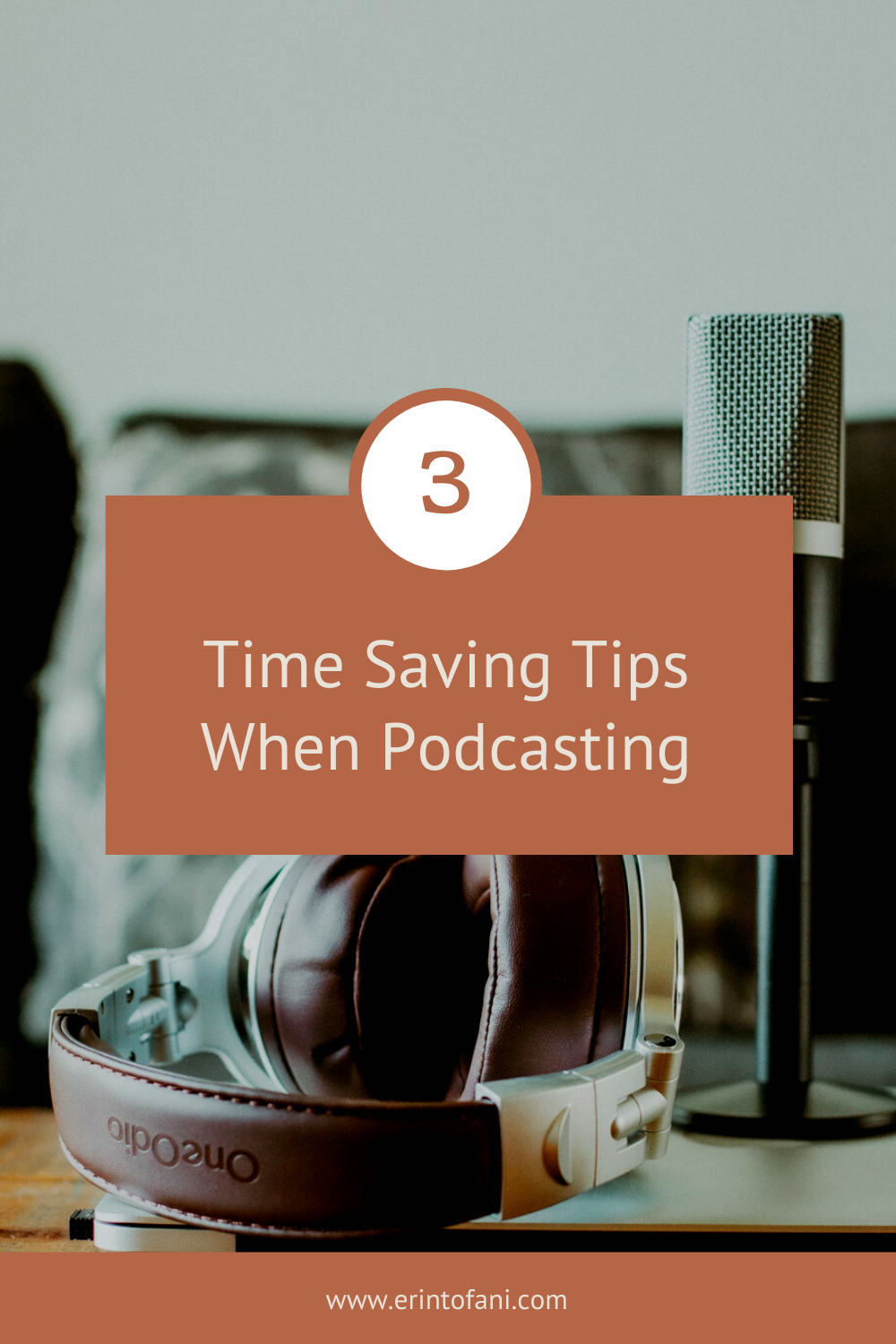3 Time Saving Tips When Podcasting
"Podcasting takes up WAY too much time", girl, that's a myth.
I DO NOT want you or any of my clients to decide to finally start the podcast they've been dreaming of only to find that it quickly feels like just another to-do on your plate, something you don't make time for and don't seem to be able to keep up with.
That will very easily cause you to approach it negatively and cause you to burn out and quit.
PLEASE DON'T DO THAT!
To keep you from heading down that path, I'm giving you three tips to help you save MORE of your precious time when podcasting, and keep you coming back to the mic happy, intentional, and using your show to actually get the result you're looking for (let's get those clients coming in and that money along with them)!
HERE'S WHAT YOU'VE BEEN WAITING FOR:
Tip 1. CONTENT PLANNING
By planning your content ahead of time, you can strategically plan your show content around your offers, launches and programs (and so much more). Why is this important? Because you can use your Podcast as a “funnel” to bring new people into your community, create that oh so important “know, like, and trust” factors, and then convert them into clients.
If you don’t like your episode to appear to be super scripted, just simply jot down your main topics and points you’d like to cover in the episode as a general “brain dump” and you can still arrange a schedule ahead of time for yourself as when you want episodes around those topics to release — anything to help you preplan is a win.
Tip 2. BATCHING YOUR EPISODES
By batching your episodes, you save yourself a TON of time, so you're not recording every single week, and you can form a backlog of content so you're never caught off guard and stuck in a bind, having to record last minute when life gets busy. Now actually DOING this doesn’t have to be hard either. Let’s start with this example:
You release 1 episode per week, and there are 4 weeks next month.
That means you have 4 episodes you need content for for the month, right? So for fun, let’s say 5 JUST because.
Ok, so 5 episodes needs to be recorded, but you plan to have one guest on your show this month, so let’s knock that back down to 4 solo shows that need to be recorded.
Let’s say you “average” about 30-40 minutes of RAW (unedited) audio when you typically record each episode. Now, for the sake of a “buffer” of time, let’s say it takes an average of 1 hour to record each episode.
Here’s how you’re gonna batch them:
Block out on your schedule this week, 2 hours dedicated to recording 2 solo episodes.
Block out on your schedule two weeks from now, to record 2 more solo episodes.
Block out on your schedule only once per month another 2 hours to batch together 2 guest episodes back to back.
Now, you end up with only 3 days per month, in 2 hour chunks to record episodes for you podcast. And what do you get out of that?
-You do not ❌ have to record every single week
-You do end up creating 4 solo episodes and 2 guest episodes in one month — that’s 6 SIX episodes over only 3 days (out of an entire month) and you’re 👏🏻done👏🏻recording👏🏻
Why should you adopt this method? If you stay on an every other week or every two week cycle of recording episodes and then also batch your guest interviews, you will create a BACKLOG of episodes and you will never ever ever run out of content.
Why is that EXTREMELY IMPORTANT? Because of life lady. L I F E happens and things get in the way. You can stay loyal and consistent to your audience even if you haven’t sat behind the mic in a week - work smarter not harder, right?
Tip 3. OUTSOURCING YOUR EPISODES
By outsourcing your episodes, you keep your focus on content creation ONLY, and stay in your zone of genius. Let a professional (like me 😉) handle the editing for you - because it's MY zone of genius, and you get a stellar result when it's finished.
Editors listen to your audio not just for errors or fumbles when you’re speaking. I’m listening for background nosies, mouth clicks, lip smacks, loud swallows or any noises that could be potentially distracting for the audience. I’m also adjusting the sound quality using audio filters to improve echos, reverb, hums and other sounds that happen when our mic picks up the room around us.
The goal isn’t to cut everything either, there’s a delicate balance between keeping the audio authentic to the speaker and making edits that appear to have never happened (no editor wants to leave footprints behind on the audio). Leave this stuff to the professionals that love doing it and trust me, you’ll feel so much better when you can just record and walk away. 👏🏻
Want ALL the juicy details that go with these three tips in VIDEO form from yours truly?
Check out my 3 Tips under 3 minutes Highlight on Instagram for the full video tutorial.
There are SO many ways you can save yourself time when Podcasting and it’s super easy to get into a routine — you just have to know HOW to go about it.



